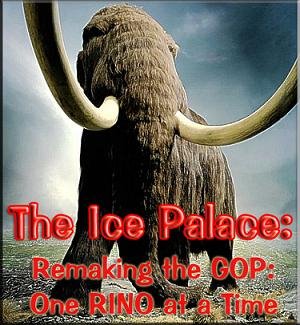The Dirt Pile and
Raging Right Wing Republican report on
this story in the London Telegraph that reports on a two million dollar bribe offered a Swedish member of the weapons inspection team by none other than Saddam Hussein.
Rolf Ekeus, the Swede who led the UN's efforts to track down the weapons from 1991 to 1997, said that the offer came from Tariq Aziz, Saddam's foreign minister and deputy.
Mr Ekeus told Reuters news agency that he had passed the information to the Volcker Commission. "I told the Volcker people that Tariq [Aziz] said a couple of million was there if we report right. My answer was, 'That is not the way we do business in Sweden.' "
A clean report from Mr Ekeus's inspectors would have been vital in lifting sanctions against Saddam's regime. But the inspectors never established what had happened to the regime's illicit weapons and never gave Iraq a clean bill of health.
The news that Iraq attempted to bribe a top UN official is a key piece of evidence for investigators into the scandal surrounding the oil-for-food programme. It proves that Iraq was offering huge sums of cash to influential foreigners in return for political favours.
Nile Gardiner, of the Heritage Foundation in Washington, who has followed the inquiries, said: "It's the tip of the iceberg of what the Iraqis were offering. For every official like Ekeus who turned down a bribe, there are many more who will have been tempted by it."
This
has to beg a question... If Saddam had no WMDs, why the need to bribe inspectors so as to "doctor" a report to give Iraq a "clean bill of health" (something that, according to the story, was
never given)? And how many of those inspectors actually took the bribe? Since Rolf Ekeus was the only one to report being bribed, one could justifiably harbor the suspicion that others were not as forthcoming; perhaps for reasons of self-interest. Anyway you put it, the sudden absence of WMDs in contradiction of a plethora of evidence that they were there, and Saddam's bribes in what appeared to be an effort to keep them from being reported, begs the real $64,000,000 question that nobody appears to be asking:
Where are the WMDs now?















|